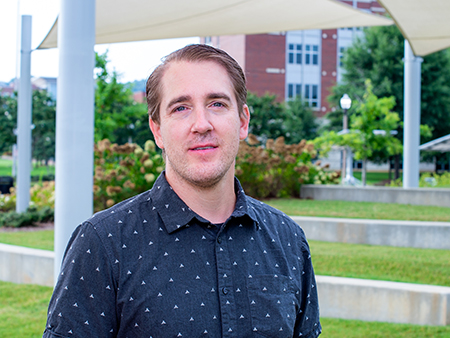 Peter Hendricks will study psilocybin, a psychedelic compound, on its effects on smoking cessation.Researchers at the University of Alabama at Birmingham, Johns Hopkins University and New York University were awarded nearly $4 million in funding to study the efficacy of psilocybin, a classic psychedelic compound, in helping people quit smoking. The grant from the National Institute on Drug Abuse is the first federally funded study of a classic psychedelic as a therapeutic in approximately 50 years.
Peter Hendricks will study psilocybin, a psychedelic compound, on its effects on smoking cessation.Researchers at the University of Alabama at Birmingham, Johns Hopkins University and New York University were awarded nearly $4 million in funding to study the efficacy of psilocybin, a classic psychedelic compound, in helping people quit smoking. The grant from the National Institute on Drug Abuse is the first federally funded study of a classic psychedelic as a therapeutic in approximately 50 years.
“This is a groundbreaking study that opens the door to further study of psychedelic compounds,” said Peter Hendricks, Ph.D., professor in the Department of Health Behavior at the UAB School of Public Health and a site principal investigator. “These compounds could be game-changers for the future of mental health and addiction care.”
A resurgence in research of classic psychedelics over the past two decades has shown the benefits of the compounds in the mental health and addiction fields, says Hendricks. The studies, funded mostly by philanthropy efforts, have led to impressive clinical findings, specifically with end-of-life distress, major depressive disorder and substance use disorder. While compounds such as psilocybin have risks, previous studies have shown these risks can be controlled and mitigated through screening, preparation, monitoring and follow-up care.
 Peter Hendricks, Ph.D.
Peter Hendricks, Ph.D.
(Photography: Lexi Coon)Hendricks, Matt Johnson, Ph.D., Susan Hill Ward Professor of Psychedelics & Consciousness Research at JHU, and Michael Bogenschutz, director of the NYU Langone Center for Psychedelic Medicine, will conduct the three-year study at each of their respective institutions. The multi-site approach provides a diversified pool of participants and increases confidence that results should apply to a wide range of people who smoke.
“Even the very best existing smoking cessation treatments — those that include both counseling and medication — yield abstinence rates of only 30 percent or so,” Hendricks said. “This means, if we gave 100 smokers the very best treatment money can buy, only 30 would actually quit. We need to do better. Psilocybin has the potential to significantly improve the effectiveness of smoking cessation treatments. Considering almost half a million Americans die from smoking every year, this could end up saving millions of lives, if not more.”
Hendricks and his co-investigators have studied classic psychedelics for years and have extensive experience in studying psilocybin and addiction treatment research. Hendricks is also known for his research in tobacco and smoking cessation.